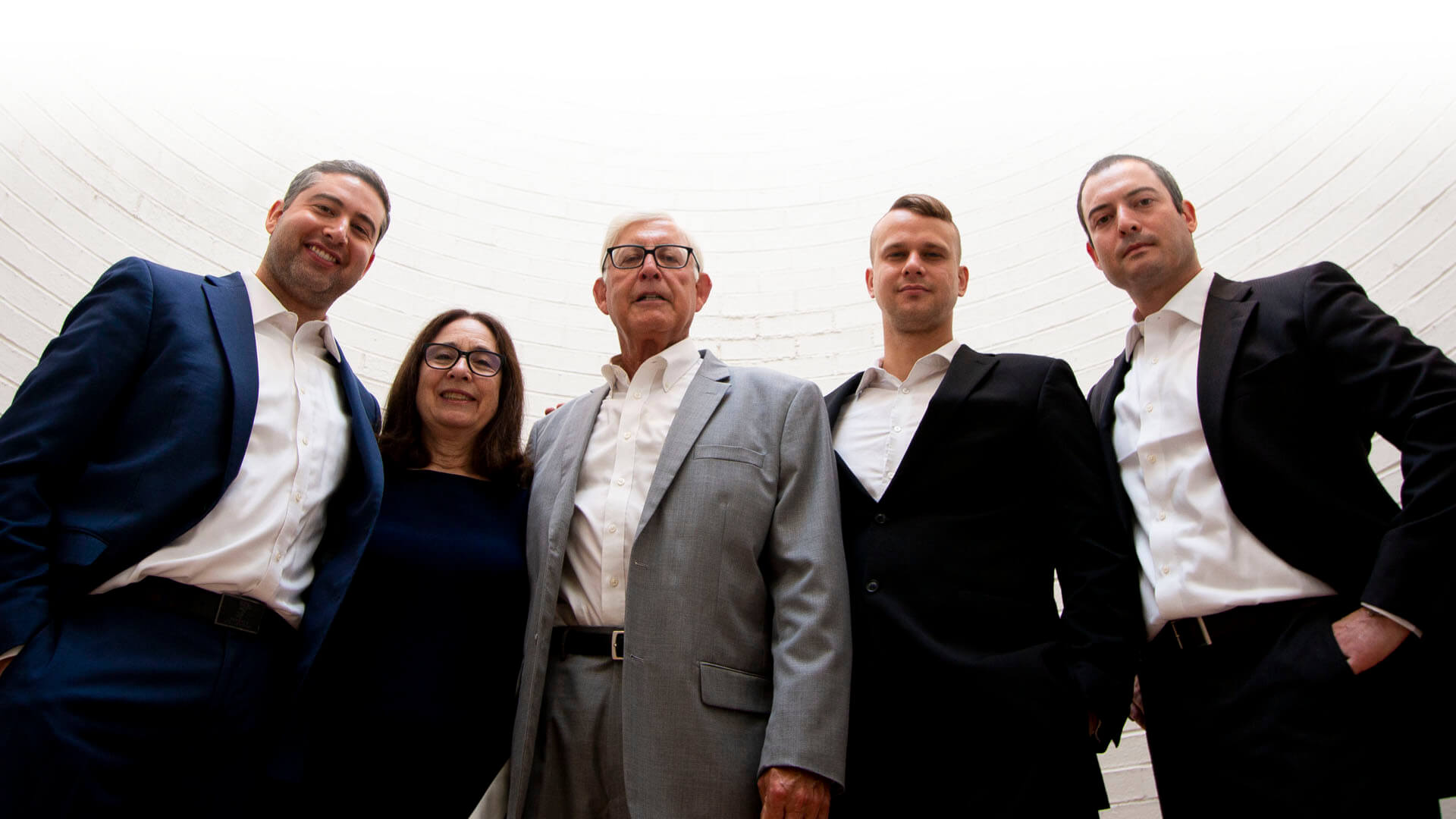Frequently Asked Questions
Should I settle or go to court?

If you ever find yourself a victim of an accident that results in a personal injury you’re likely to have many questions on what to do next. Of course, the first thing you should do is seek proper medical attention – your safety and well-being come before anything.
Once the situation has calmed down and if you feel that your accident was caused by the negligence or carelessness of another person, business, or the seller or manufacturer of a defective product, you may decide that you want to pursue legal action to receive the compensation you are owed.
In many personal injury cases, the client will be presented with two options:
- To accept a settlement offer and avoid a trial
- Go to trial and let a judge and/or jury decide the outcome
Understanding what the difference is between the two as well as the benefits and drawbacks will help anyone make an informed decision on the route they wish to pursue.
Table of Contents
What does it mean to settle a case?
Statistically, the majority of personal injury cases never see the light of a courtroom. Both parties, typically represented by their attorneys or a legal team, will get together and negotiate a resolution between the plaintiff and the defendant.
While no two personal injury cases are alike – the path towards a settlement may look similar to the example below:
- The attorney or legal team of the plaintiff (the injured person) puts together a formal, written letter listing what they feel is fair compensation to the legal representation of the defendant(s) (the person(s) or party potentially liable) – this letter, which is often accompanied by materials that support its assertions, is often referred to as a “demand letter”
- The defendant’s legal team reviews the letter, a counteroffer may follow if the proposed amount is agreed upon
- The back-and-forth negotiations may involve subsequent phone calls, emails, and potentially even a mediation or pre-trial hearing
- During this process, both parties may reach a settlement agreement. If an agreement is made a formal document is drafted, signed, and the case is considered settled. The matter is ultimately resolved once payment is made in accord with the settlement terms and any actions on a court docket are formally discontinued.
What are the pros and cons of a settlement for a personal injury case?
A settlement may seem like an attractive option for both the plaintiff and defendant, however, both parties may be making some compromises by not having their day in court.
Pros of taking a settlement in a personal injury claim
- The process is often much quicker than going to court
- During the negotiations the injured party and their legal team are in control – you are not legally obligated to accept any offer that is made and you are free to make any reasonable counteroffer
- The plaintiff has the ability to work with the defendant to structure the terms of the settlement that may be financially advantageous
Cons of taking a settlement in a personal injury claim
- You may end up recovering less money by accepting a settlement
Note: Your attorney should be able to provide guidance and help advise you as to whether a settlement or going to trial is best for you. While not an exact science, your counsel should be able to form a professional opinion and intelligently discuss your options. However, the ultimate choice to accept or reject an offer will always be the client’s choice (and in some instances may even require Court approval in the case of minor children, estates, or individuals that lack the capacity to consent). - A settlement is a permanent decision, meaning, once it is made there is nothing further that can be done with the case. This is true even if the plaintiff discovers he or she has additional injuries or damages.
- In instances where there are multiple defendants, it is sometimes possible to execute a release that dismisses claims against less than all defendants. A release that dismisses fewer than all defendants is often referred to as a joint tortfeasor release. It is materially different than a general release, which is usually construed to release any potentially responsible entity. (This is true whether those additional parties and/or unnamed entities financially contributed to the settlement.)
What does it mean to go to court and what is the trial process?
While it’s often romanticized in film and television, going to trial can be different than what you see in the movies and streaming series.
Going to trial means that the injured party (the plaintiff) will go to a courtroom and have their personal injury claim argued against the potential liability party (the defendant) in front of a judge and/or jury. The hope is that the case will be decided by an unbiased third party, and that result will be final.
If the trial involves a jury, the typical phase or timeline includes:
- Assembling the jury
- Both sides give their opening statement, or their argument on why or why not the defendant is liable for the injuries sustained
- There may be witness(es) that offer testimony that could involve subject matter or industry experts being questioned and examined
- Closing arguments are made
- The judge will instruct the jury on what they are to do
- The jury is isolated and deliberates or decides on the verdict
- The verdict is presented and the judge finalizes the disposition of the case
A personal injury trial can last days, weeks, and – in rarer instances – even months. In short, no case is the same. Trials usually involve a massive time and resource commitment by both legal teams.
What are the pros and cons of a going to court or trial for a personal injury case?
Like a settlement, going to court for a personal injury case has benefits and drawbacks for the injured party.
Pros of going to court or trial for a personal injury case
- The victim has the potential to receive more compensation
Why? The Plaintiff is no longer seeking a compromise. The Plaintiff has made the decision that he or she is willing to bear the risk, uncertainty, and expense of trial in order to have a jury (or in more rare instances a judge) make a determination. - The feeling that justice is served may be greater when the case gets taken to court and decided by a judge and/or jury
Cons of going to court or trial for a personal injury case
- The process is much longer and more involved
- There is the potential that you could lose your case and receive no compensation or recieve and award for less compensation than a settlement offer would have provided
- The plaintiff has given up control and is unable to structure an award
- The verdict may be subject to an appeal and a long appellate process
What should I do?
Every case is different. It’s impossible to tell someone with a perfect degree of certainty what to do when it comes to a personal injury claim or lawsuit.
However, if you think you need to pursue legal action after suffering a personal injury the first step you should take is finding the right attorney or law firm that has a proven track record in delivering results and victories. Choosing a lawyer you’ve seen on television commercials or billboards may result in a settlement, but is that as much as you could have received? How often do these attorneys actually see the inside of a courtroom and try cases?
You need to choose the right attorney or law firm for your case – not just one you see advertising their services.
The attorneys at Schiffman Firm have over 100 years of combined legal and trial experience. We’ve seen a wide variety of cases and we know how to handle complex cases, especially the ones that involve dangerous and defective products. With our experience, we’ll be able to provide you the guidance and professional advice as to whether you should accept a settlement offer or if you should take your claim to court. No matter the decision you make, our team will serve as aggressive advocates to advance your interests. Your case is our cause.
Want to see if and how we can help? Contact us today for a free consultation and a review of your case.
Answered By:
Attorney Daniel SchiffmanMore About Daniel:
Daniel S. Schiffman, a partner at Schiffman Firm, is a litigator who practices primarily in the fields of personal injury, product liability, and business litigation. Attorney Schiffman is licensed to practice law in all Pennsylvania state courts (60 judicial districts) and all three of Pennsylvania’s federal district courts.
More Frequently Asked Questions
Which Goodyear tires have been recalled?
What are the most recent tire recalls?
What were the most expensive product recalls of 2023
What are the biggest automobile recalls of 2024?
What are bowriders and why are they dangerous?
What are the dangers of infant inclined sleepers and beds?
What do I do if I was injured by a Peloton?
What is seatback failure?
How are electric bikes (e-bikes) dangerous?
What are the hidden dangers of car seats for children?
When Bad Products Hurt Good People - Your Case Is Our Cause
Which Law Firm Handles Product Liability and Defective Product Personal Injury Claims?
With over 100 years of collective legal and trial experience, the team at Schiffman Firm has been a leader in providing trusted legal representation to injured victims and other types of clients in Pittsburgh, Pennsylvania.
With a focus in product liability cases caused by dangerous and defective consumer and commercial products, our attorneys bring vast amounts of experience and expertise to victims and families that have suffered an injury caused by defective products like, but not limited to:
Automobiles and Airbags
Firearms, Bows, and Hunting Equipment
Power Tools, Machinery, and Snow Blowers
Infant Inclined Sleepers, Beds, and Rockers

